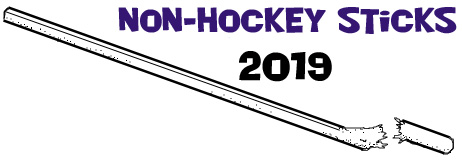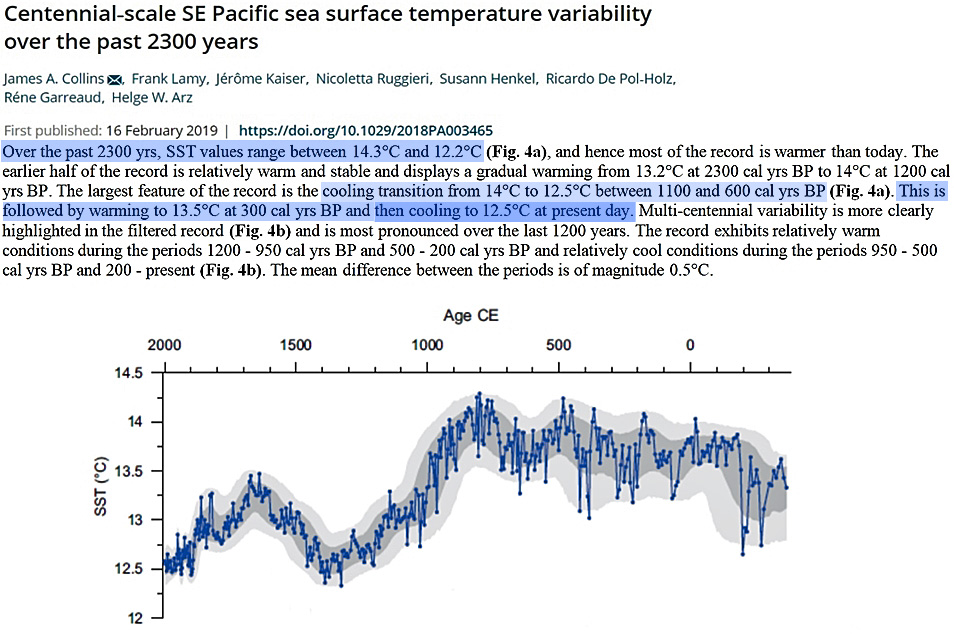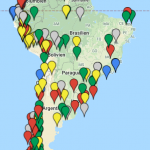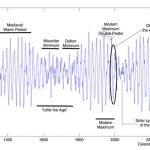- Joined
- Nov 28, 2011
- Messages
- 26,966
- Reaction score
- 24,249
- Gender
- Undisclosed
- Political Leaning
- Other
Three related articles in Nature discuss how warming in the past few decades is significantly different than warming during the rest of the Common Era:
No evidence for globally coherent warm and cold periods over the preindustrial Common Era | Nature
Last phase of the Little Ice Age forced by volcanic eruptions | Nature Geoscience
Consistent multidecadal variability in global temperature reconstructions and simulations over the Common Era | Nature Geoscience
A summary article:
The aberrant global synchrony of present-day warming
First and Third paper: During earlier periods like the Little Ice Age and Medieval Warming Period, changes in climate were smaller in scope, and affected different regions at different times. In contrast, climate change during the Industrial Era is coherent and truly global:
The team reports in Nature that, although the Little Ice Age was the coldest epoch of the past millennium, the timing of the lowest temperatures varied from place to place. Two-fifths of the planet were subjected to the coldest weather during the mid-nineteenth century, but the deepest chill occurred several centuries earlier in other regions. And even at the height of the Medieval Climate Anomaly, only 40% of Earth’s surface reached peak temperatures at the same time. Using the same metrics, global warming today is unparalleled: for 98% of the planet’s surface, the warmest period of the Common Era occurred in the late twentieth century — the authors’ analysis does not encompass the continued warming in the early twenty-first century, because many of their proxy records were collected more than two decades ago.
Second paper: Climate variations such as the LIA were predominantly due to volcanic activity. They find that solar activity had almost no impact. No surprise there, really: This is obviously consistent with lots of existing research which reaches the same conclusion.)
So yes, there is natural sources of climate change... but they don't affect the planet the same way as when the source is anthropogenic. Raise your hand if you're surprised.
No evidence for globally coherent warm and cold periods over the preindustrial Common Era | Nature
Last phase of the Little Ice Age forced by volcanic eruptions | Nature Geoscience
Consistent multidecadal variability in global temperature reconstructions and simulations over the Common Era | Nature Geoscience
A summary article:
The aberrant global synchrony of present-day warming
First and Third paper: During earlier periods like the Little Ice Age and Medieval Warming Period, changes in climate were smaller in scope, and affected different regions at different times. In contrast, climate change during the Industrial Era is coherent and truly global:
The team reports in Nature that, although the Little Ice Age was the coldest epoch of the past millennium, the timing of the lowest temperatures varied from place to place. Two-fifths of the planet were subjected to the coldest weather during the mid-nineteenth century, but the deepest chill occurred several centuries earlier in other regions. And even at the height of the Medieval Climate Anomaly, only 40% of Earth’s surface reached peak temperatures at the same time. Using the same metrics, global warming today is unparalleled: for 98% of the planet’s surface, the warmest period of the Common Era occurred in the late twentieth century — the authors’ analysis does not encompass the continued warming in the early twenty-first century, because many of their proxy records were collected more than two decades ago.
Second paper: Climate variations such as the LIA were predominantly due to volcanic activity. They find that solar activity had almost no impact. No surprise there, really: This is obviously consistent with lots of existing research which reaches the same conclusion.)
So yes, there is natural sources of climate change... but they don't affect the planet the same way as when the source is anthropogenic. Raise your hand if you're surprised.







